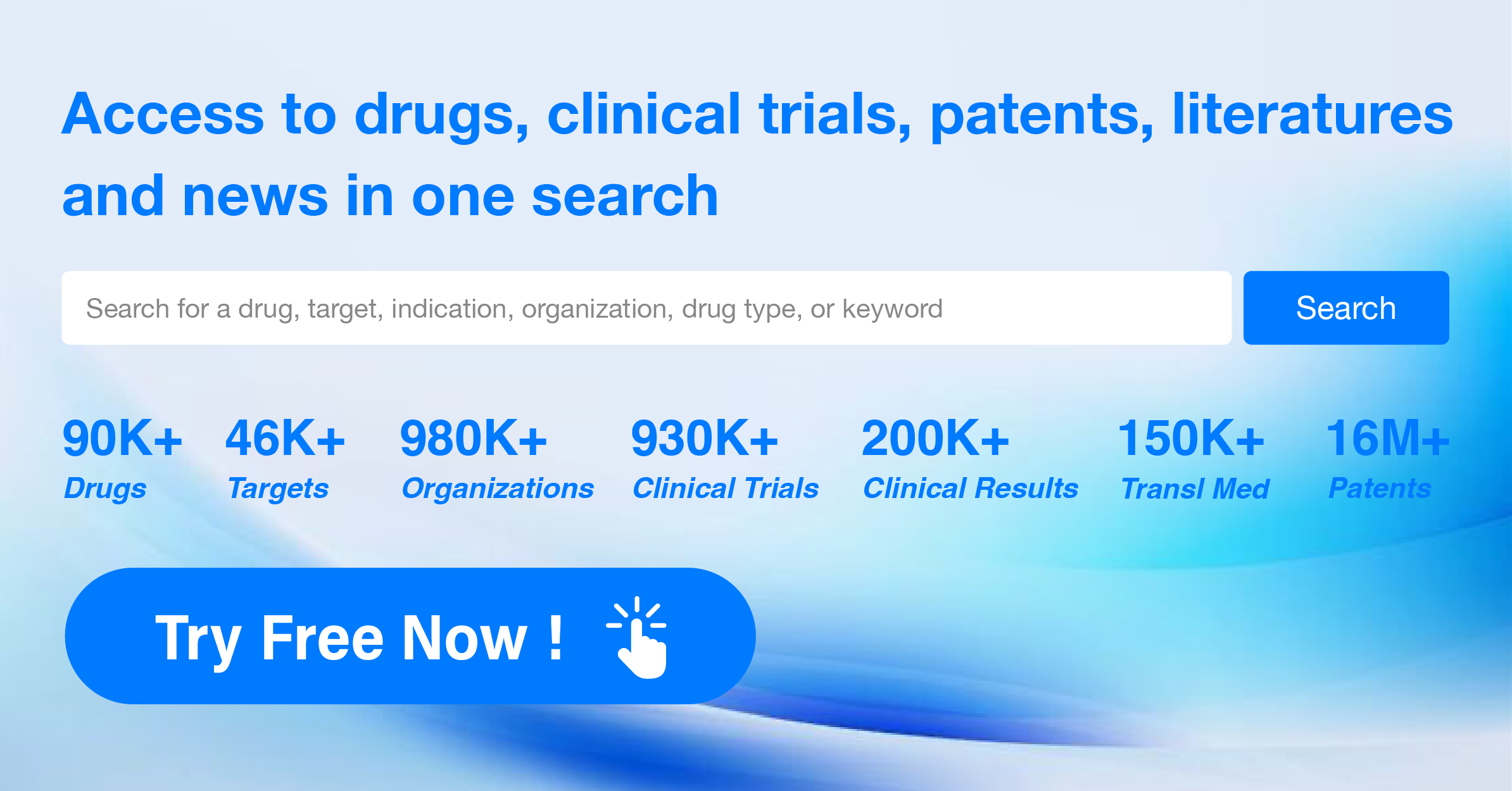Pharma Frontiers: Daily Digest of Global Pharmaceutical News – Jul 3
1.Neurocrine Biosciences files for market approval of its new CRF1 antagonist drug, aimed at treating rare endocrine disorders
On July 1st, Neurocrine Biosciences announced that the FDA has accepted two New Drug Applications (NDAs) for Crinecerfont with priority review status. These applications target the treatment of children, adolescents, and adults with classic congenital adrenal hyperplasia (CAH). If approved, Crinecerfont would be the first new treatment option for CAH in 70 years, offering a novel approach to managing this rare and severe endocrine disorder. The submissions by Neurocrine Biosciences for Crinecerfont include its formulation as both a capsule (NDA#218808) and an oral solution (NDA#218820) intended to treat classic CAH through evaluating its efficacy and safety.
Crinecerfont previously received Orphan Drug Designation in March 2019 and was granted Breakthrough Therapy Designation in December 2023. CAH is a rare genetic disorder characterized by enzyme deficiencies that alter the production of vital adrenal hormones. Without timely intervention, CAH can lead to salt-wasting, dehydration, and even death.
Crinecerfont acts as a selective oral antagonist of the corticotropin-releasing factor type 1 receptor (CRF1), reducing and controlling excess adrenocorticotropic hormone and adrenal androgens through a glucocorticoid-independent mechanism in patients with 21-OHD deficiency causing CAH. By antagonizing CRF1 in the pituitary, it can lower ACTH levels, thereby reducing the production of adrenal androgens and potentially alleviating symptoms associated with classic CAH. Research data indicates that lowering adrenal androgen levels can reduce physiological dosages of glucocorticoids needed to control androgen excess, which might also reduce complications arising from exposure to high doses of glucocorticoids in CAH patients.
2.Eli Lilly and Company Launches Phase 3 Clinical Trial of Extended-Release RNAi Therapy in China for Cardiovascular Diseases
On July 1, the latest update from the China Drug Trials Registration and Information Disclosure Platform showed that Eli Lilly and Company has initiated an international multi-center Phase 3 clinical study (including sites in China) of lepodisiran (LY3819469). The study will assess lepodisiran's ability to reduce the risk of major adverse cardiovascular events (MACE) in adults diagnosed with atherosclerotic cardiovascular disease (ASCVD) with elevated lipoprotein(a) [Lp(a)] levels, or in those at an increased risk of a first cardiovascular event. Lepodisiran is a small interfering RNA (siRNA) targeting the LPA gene, which works by disrupting the mRNA that produces lipoprotein(a) in the liver, thereby reducing its levels. This therapy is being investigated to treat atherosclerotic cardiovascular disease (ASCVD). Extensive research indicates that, even with effective reduction of low-density lipoprotein cholesterol (LDL-C) in patients with atherosclerotic cardiovascular disease, elevated Lp(a) levels still increase future cardiovascular risk, making Lp(a) a significant new therapeutic target.
In November 2023, Eli Lilly presented the initial human study results for lepodisiran at the American Heart Association's Scientific Sessions. The primary findings showed that under the highest dose (608mg) of lepodisiran, Lp(a) levels rapidly decreased, becoming undetectable by day 29 and remaining undetectable up to day 281, with slight increases thereafter. By week 48, the median level of Lp(a) was reduced by 94%, with the maximum median change reaching 97%. This study demonstrates that a single injection of lepodisiran can reduce Lp(a) levels to undetectable amounts for nearly a year. These significant research findings were also published in the prestigious Journal of the American Medical Association (JAMA).
3.Biostar Pharmaceuticals' Utidelone Approved by FDA for Phase 2 Clinical Trial in Treating HER2-Negative BCBM
On July 2, Biostar Pharmaceuticals announced that their injectable utidelone for the treatment of brain metastases from HER2-negative breast cancer (BCBM) has received U.S. FDA approval for a Phase 2 clinical trial (BG01-2402). This study aims to evaluate the intracranial and systemic efficacy and safety of utidelone injection in combination with capecitabine in treating patients with HER2-negative BCBM. Around 20%-50% of patients with advanced breast cancer develop brain metastases. In recent years, small molecule TKIs and novel antibody-drug conjugates (ADCs) have provided survival benefits for patients with HER2-positive breast cancer brain metastases. However, there has been a distinct lack of effective pharmacological treatments for HER2-negative breast cancer brain metastases, and no drugs have been globally approved for this subgroup, highlighting a significant unmet clinical need.
According to a press release from Biostar Pharmaceuticals, the unique physicochemical properties of utidelone and its insensitivity to P-glycoprotein-mediated efflux allow it to penetrate the blood-brain barrier. This characteristic has been thoroughly demonstrated in preclinical pharmacokinetic studies of tissue distribution, analysis of cerebrospinal fluid in patients with brain tumors, and various clinical studies targeting breast cancer brain metastases.
At this year's ASCO meeting, researchers reported first-in-human data from a Phase 2 study of utidelone combined with bevacizumab in treating HER2-negative breast cancer brain metastases. The study included 47 patients, achieving a central nervous system objective response rate (CNS-ORR) of 42.6%, with a median progression-free survival (mPFS) of 7.7 months (CNS-ORR of 55% and mPFS of 8.4 months in HR-negative/HER2-negative patients). The 12-month overall survival rate was 74.4%, and the adverse events were primarily grade 1-2. The study indicated that utidelone has significant efficacy in treating brain metastases with a manageable safety profile, offering a new therapeutic option for patients with HER2-negative breast cancer brain metastases.
4.Over 93% Control Achieved in Late-Stage Gastric Cancer! Innovent Biologics Announces Clinical Data for ADC Product
On July 2nd, Innovent Biologics announced at the European Society for Medical Oncology Gastrointestinal Cancer Congress (ESMO GI) the latest Phase 1 study data from an oral presentation on their innovative anti-CLDN18.2 antibody-drug conjugate (ADC), IBI343, for treating advanced gastric or gastroesophageal junction adenocarcinoma (G/GEJ AC). The results demonstrated outstanding efficacy and good safety of IBI343 in patients with CLDN18.2-positive gastric cancer. Upon binding to CLDN18.2-expressing tumor cells, IBI343 undergoes CLDN18.2-dependent ADC internalization, releasing a cytotoxic drug that causes DNA damage and leads to tumor cell apoptosis. The free cytotoxic drug can also diffuse through the plasma membrane to reach and kill adjacent tumor cells, hence IBI343 also exhibits a bystander effect.
The reported data came from a Phase 1 study conducted in China and Australia, showing the following results: in subjects with high CLDN18.2 expression (defined as ≥75% tumor cells with CLDN18.2 staining intensity of ≥2+), the 6mg/kg dose group (N=30) demonstrated an objective response rate (ORR) of 36.7% and a disease control rate (DCR) of 93.3%. In the 8mg/kg dose group (N=17), ORR reached 47.1%, with a DCR of 88.2%. The median follow-up of 7.2 months showed a median progression-free survival (PFS) of 6.8 months in patients highly expressing CLDN18.2 treated with the 6mg/kg dose. The majority of treatment-emergent adverse events (TEAEs) were Grade 1-2, with only 31.6% of participants in the 6mg/kg dose group experiencing Grade 3 or higher treatment-related adverse events (TRAEs). Severe gastrointestinal reactions were very low (<5%), and no cases of interstitial lung disease (ILD) occurred.
As per Innovent Biologics' press release, IBI343 was granted a breakthrough therapy designation by China's NMPa in May of this year for use in advanced gastric/gastroesophageal junction adenocarcinoma expressing CLDN18.2, in patients who have received at least two systemic treatments. A multicenter Phase 3 clinical trial for this indication is currently being planned.
5.Hengrui Pharmaceutical's Bupivacaine Liposome Injectable Suspension Approved by FDA
On July 2nd, Hengrui Medicine announced that the FDA has approved its bupivacaine liposome injectable suspension (available in two doses: 133mg/10mL and 266mg/20mL) for marketing in the United States. This makes Hengrui the first manufacturer in the U.S. to receive approval for a generic version of this medication. Bupivacaine is an amide-type local anesthetic widely used in clinical settings for local anesthesia and post-operative pain management. Compared to conventional injections which last 5 to 6 hours, bupivacaine liposome injectable suspension can extend analgesic effects to several days. It utilizes an advanced multicapsular liposomal drug delivery system for sustained release, significantly benefiting pain management in surgical patients and thereby improving their quality of life.
Originally developed by Pacira Pharmaceuticals in the USA and marketed under the brand name Exparel, bupivacaine liposome injectable suspension was first approved in the United States in 2011, and is currently available only in the United States and Europe. Due to high technical barriers, in the decade following its launch, no generic version was successfully marketed. As of 2023, the global sales of bupivacaine liposome formulations amount to approximately $538 million.
Hengrui Medicine’s bupivacaine liposome injectable suspension has undergone comprehensive in vitro evaluations and the necessary in vivo assessments to ensure equivalence in quality and efficacy with the original proprietary product. In December 2022, this product was approved for market in China under category 3 registration, and it was recognized as passing the generic drug consistency evaluation.
6.HRYZ Biotech Announces Research Findings on TCR-T Cell Product
On July 1st, HRYZ Biotech announced that its R&D team published a research paper in the journal Nature Communications, which detailed the development process, mechanism of action, and preclinical pharmacological and toxicological study results of the company’s first TCR-T product to enter clinical stage, HRYZ-T101. HRYZ-T101 is a TCR-T product targeting HPV18 positive solid tumors. This product is currently under development for the treatment of HPV18 positive solid tumors, and the first patient has been dosed in a Phase I clinical trial.
In this study, using the Reverse Genetic Engineering T Cell Receptor (ReGET) platform technology, the research team successfully cloned a TCR molecule (10F04 TCR) targeting the HPV18 E7 tumor antigen from a patient who benefitted from early stage Multiple Antigen Specific Cellular Therapy (MASCT). Diagnosed with HPV positive advanced metastatic cervical squamous cell carcinoma in 2011, the patient had a relapse after undergoing surgery, chemotherapy, and radiation. Starting from 2014, after multiple rounds of MASCT treatment, the tumor gradually regressed and the patient achieved longstanding remission, remaining tumor-free for over nine years to date. The long-term presence of T cells specifically targeting HPV18 E7 and other tumor antigens in this patient's body is believed to be the reason for the clinical benefit observed.
According to the news release by HRYZ Biotech, the research findings confirmed that 10F04 TCR specifically recognizes the HPV18 E7 antigen peptide presented by the HLA-DRB1*09:01 molecule, which is prevalent among the Chinese population. The TCR exhibited potent antitumor activity both in vitro and in mouse models. The results showed that 10F04 TCR could mediate recognition and direct killing of antigen-positive tumor cells by both CD4+ and CD8+ T cells, releasing antitumor cytokines such as IFNγ, TNFα, IL2, and Granzyme B, thereby inducing apoptosis in tumor cells and promoting the proliferation of TCR-T cells.
7.Merck Exercises Option to Acquire Global Exclusive Rights for CYP11A1 Inhibitors
On July 1st, Merck and Orion Corporation jointly announced that they have exercised their option to transition the joint development and commercialization rights of the CYP11A1 inhibitor, opevesostat (MK-5684/ODM-208), and other CYP11A1 inhibitor candidates, into exclusive global licensing rights held by Merck. According to the agreement, Orion is eligible to receive up to $30 million in development milestone payments, up to $625 million in regulatory milestone payments, and up to $975 million in sales milestone payments, in addition to yearly tiered royalties on net sales of any commercialized products, with rates ranging from low double digits to over twenty percent.
MK-5684 is a novel, oral, non-steroidal, selective CYP11A1 inhibitor currently being developed for the treatment of prostate cancer. CYP11A1 catalyzes the first step of steroid biosynthesis and is a rate-limiting enzyme, thus MK-5684 can inhibit the generation of all AR signaling pathway-related steroidal hormones and precursors. At the moment, MK-5688 has initiated two pivotal Phase III clinical trials, including the OMAHA1 study (NCT06136624) and the OMAHA2a study (NCT06136650).
The OMAHA1 study aims to assess the efficacy and safety of MK-5684 in combination with hormone replacement therapy (HRT) compared to alternative NHAs (Abiraterone or Enzalutamide) in patients with advanced metastatic castration-resistant prostate cancer (mCRPC) who have previously received next-generation hormonal agents (NHAs) and taxane-based chemotherapy, with plans to enroll approximately 1200 participants. The OMAHA2a study is designed to evaluate the efficacy and safety of MK-5684 in combination with HRT compared to alternative NHAs in patients whose mCRPC has progressed during or after NHA treatment, with an enrollment target of approximately 1500 participants.
8.Eli Lilly and Radionetics Collaborate to Develop GPCR-targeted Radiopharmaceuticals with a $1 Billion Acquisition Option
On July 1st, Eli Lilly and Company announced a strategic collaboration with Radionetics to advance Radionetics' proprietary GPCR-targeted small molecule radiopharmaceuticals. Under the terms of the agreement, Radionetics will receive an upfront payment of $140 million. As part of the strategic collaboration, Eli Lilly will acquire the exclusive right to purchase Radionetics for $1 billion at the end of the option period. During this time, Radionetics will continue to build a proprietary pipeline of therapeutic drug assets. These will include therapies using Radionetics’ proprietary discovery platform and associated intellectual property targeting GPCR with small molecule radioligands. Earlier in January, this emerging biotech company announced it had raised $52.5 million in Series A funding.
Radionetics’ candidate drug, 68Ga-R8760, is currently undergoing Phase 1 clinical trials (NCT05999292) to explore its safety and pharmacokinetics. 68Ga-R8760 is a small molecule radioligand imaging agent designed for patients diagnosed with adrenocortical carcinoma. Discovered by Radionetics Oncology, it identifies lesions in adrenocortical carcinomas expressing the melanocortin 2 receptor (MC2R), selecting patients who may benefit from MC2R-targeted radioligand therapy. This multicenter study is being conducted in collaboration with global leaders in the treatment of adrenocortical carcinoma in the United States.
How to obtain the latest research advancements in the field of biopharmaceuticals?
In the Synapse database, you can keep abreast of the latest research and development advances in drugs, targets, indications, organizations, etc., anywhere and anytime, on a daily or weekly basis. Click on the image below to embark on a brand new journey of drug discovery!




